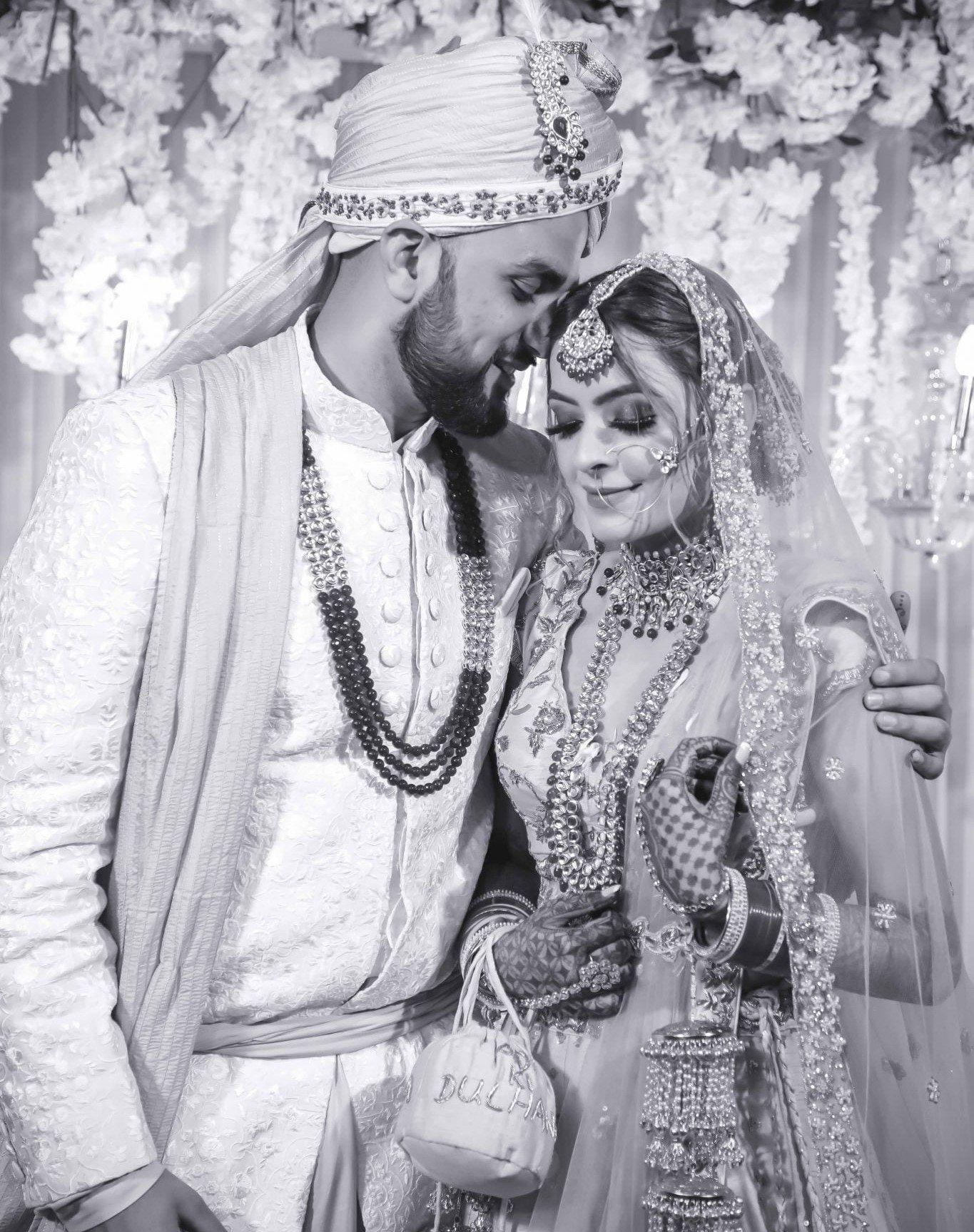
Looking for a Bride/Groom? Here are some options to help you find your perfect match:
Online Matrimonial Websites:
- Kabinbd.com
- kabin matrimony.com
- Bibaha media.com This is a Pan-Indian matrimonial site, but might have profiles from Bangladesh)
Offline Options:
- Newspaper Classifieds: Some newspapers may still have classifieds for bride/groom seekers.
- Marriage Bureaus: These are agencies that specialize in matchmaking.
Marriage bureaus, also known as matchmaking services, can be an option for finding a potential spouse in Bangladesh. Here’s what you can expect:
Services Offered:
- Matchmaking: Bureaus create profiles for clients and search for compatible matches based on your preferences (age, religion, education, etc.).
- Background Checks: Some bureaus may offer basic background checks on potential matches (verify education or employment).
- Facilitating Communication: Bureaus can help initiate communication between you and potential matches. They may provide contact information or arrange introductory meetings.
Things to Consider:
- Success Rates: Success rates can vary depending on the bureau and your specific criteria.
- Fees: Marriage bureaus typically charge registration and service fees.
- Reputation: Choose a reputable bureau with a good track record. Ask friends, family, or online reviews for recommendations.
- Transparency: Understand the bureau’s process, fees, and success rates before signing any contracts.
- Personal Preferences: Marriage bureaus can be a starting point, but trust your instincts and don’t feel pressured to accept a match you’re not comfortable with.
Finding a Marriage Bureau:
- Online Directories: Search online for “marriage bureaus in Bangladesh” or your city name.
- Newspaper Classifieds: Some newspapers may still have listings for marriage bureaus.
- Asking Around: Talk to friends, family, or colleagues who might have used a marriage bureau service.
Here are some additional points to keep in mind:
- Online Alternatives: There are many Bangladeshi online matrimonial websites that offer similar matchmaking services (see previous suggestions).
- Focus on Compatibility: While the bureau can help with introductions, prioritize finding someone who shares your values and life goals for a lasting marriage.
- Scams: Be cautious of scams. Reputable bureaus won’t ask for exorbitant fees or pressure you into quick decisions.
I hope this information helps you decide if a marriage bureau is the right fit for your search!
- Community Events: Attending weddings, religious functions, or cultural events within your community can be a way to meet potential partners.
Community Events for Finding a Spouse in Bangladesh
While there aren’t specific events solely focused on matchmaking in Bangladesh, several community events can provide opportunities to meet potential partners who share similar backgrounds or interests. Here are some ideas:
Weddings:
- Attending weddings, especially within your own extended family or close friends’ circles, can be a chance to meet potential partners. You’ll likely encounter other unmarried guests and can strike up conversations during the celebrations.
Religious Functions:
- Participating in religious festivals, prayer gatherings, or cultural events organized by your religious community can be a way to connect with others who share your faith. This can be a good starting point if you prioritize finding someone who aligns with your religious beliefs.
Social Gatherings:
- Look for social events organized by clubs, associations, or groups related to your hobbies or interests. This could be a book club, a sports team, a volunteering organization, or any activity you enjoy. Shared interests can create a natural conversation starter and help you connect with compatible people.
Family Gatherings:
- Family reunions or large gatherings hosted by relatives can be a chance to meet extended family members you might not know well. Some families might even have unmarried cousins or friends they’d like to introduce you to.
University Events:
- If you’re a university student, attend alumni events, department gatherings, or social mixers organized by your university. These can be a way to connect with like-minded individuals who share your educational background.
Cultural Events:
- Attending cultural events like musical performances, art exhibitions, or traditional dance shows can be a fun way to meet new people, especially if you’re interested in the same cultural activities.
Tips for Success:
- Be approachable and outgoing: Strike up conversations with people you meet at these events. Let them know you’re open to meeting new people.
- Expand your social circle: The more events you attend, the more people you’ll meet and the higher your chances of finding someone special.
- Focus on building genuine connections: Don’t attend events solely for the purpose of finding a spouse. Look for people you share common interests with and build friendships first.
- Let your family and friends know you’re looking: They might know someone compatible or introduce you to potential partners within their own networks.
Remember: Finding a spouse takes time and effort. Be patient, put yourself out there, and prioritize building genuine connections at these events.
- Family and Friends: Let your trusted family and friends know you’re looking for a spouse. They may know someone compatible.
Additional Tips:

- Be clear about your preferences: Consider your age range, education level, religious background, and desired lifestyle when creating your profile or discussing your search with others.
- Honesty is key: Be truthful about yourself in your profile or discussions.
- Meet in a safe and public place for first dates.
- Take your time and get to know the person before making any commitments.
Remember, marriage is a big decision. Make sure you feel comfortable and confident before moving forward.
Here are some additional things to consider
- Inter-caste/religion marriage: If you are considering marrying someone from a different caste or religion, be sure to discuss this openly with your families and potential partner beforehand.
Inter-caste and inter-religion marriages are not as common in Bangladesh as same-caste and same-religion marriages. However, they are becoming more accepted, especially in urban areas. Here’s a breakdown of the legal and social aspects:
Legality:
- Inter-religion marriage: The Special Marriage Act, 1872 allows marriage between people of different religions in Bangladesh. However, it requires both partners to declare they are not followers of any major religion (Hindu, Muslim, Buddhist, etc.). This can be a hurdle for some couples.
- Inter-caste marriage: The legality of inter-caste marriage depends on your religion. There’s no specific law against it, but some religious customs may not approve.
Social Acceptance:
- Inter-religion marriage: These marriages can face social pressures, especially from conservative families or communities. Acceptance may vary depending on the religions involved.
- Inter-caste marriage: Inter-caste marriage within the same religion is generally more accepted than inter-religion marriage. However, some families may still disapprove based on social status or traditions.
Things to Consider:
- Family Approval: Discuss your plans with your families openly and honestly. Their support can make a big difference.
- Religious Compatibility: If marrying someone from a different religion, discuss religious beliefs and practices beforehand. Will you raise children in one religion or both?
- Social Pressures: Be prepared to face potential disapproval from some members of society.
- Focus on Compatibility: Despite differences in caste or religion, prioritize finding someone who shares your values and life goals for a successful marriage.
Resources:
- Ain o Salish Helpline: This helpline can provide legal advice on marriage registration (https://www.askbd.org/ask/)
- Marriage counseling: Consider seeking pre-marital counseling to navigate potential challenges and strengthen your relationship.
Remember: A successful marriage is built on love, respect, and understanding. If you’re truly compatible with your partner, navigating these challenges can be rewarding.
- Dowry system: The dowry system is illegal in Bangladesh, but it is still practiced in some parts of the country. Be aware of this tradition and discuss your expectations with your partner’s family.
Dowry System in Bangladesh
The dowry system, while illegal, is a complex social issue in Bangladesh. Here’s a breakdown of what you need to know:
What is Dowry?
Dowry is the practice of the bride’s family presenting gifts or property (cash, jewelry, furniture, etc.) to the groom’s family during marriage. Traditionally, it was seen as a contribution to set up the new couple’s household.
Dowry is the practice of the bride’s family presenting gifts or property (cash, jewelry, furniture, etc.) to the groom’s family during marriage. Traditionally, it was seen as a contribution to set up the new couple’s household.
Here’s a breakdown of the key points about dowry:
- Purpose: Originally, dowry might have been a way for the bride’s family to contribute to the new couple’s life together.
- Problems: Today, dowry can be a major social and financial burden on the bride’s family. It can lead to debt, exploitation, and even violence.
Legality:
- Dowry is illegal in Bangladesh. The Dowry Prohibition Act of 1980 prohibits demanding or accepting dowry.
Alternatives:
- Focus on finding a partner who values you for who you are, not what your family can offer.
- Discuss starting your married life by jointly contributing to household expenses.
Looking Ahead:
- Changing social attitudes and stricter enforcement of the law are needed to eradicate the dowry system.
Why is it a Problem?
- Financial Burden: The pressure to provide a large dowry can cause immense financial strain on the bride’s family. This can lead to debt or even force families to sell assets.
- Exploitation: The dowry system can be seen as a form of exploitation, where the groom’s family expects a substantial payment.
- Violence: Dowry demands can sometimes lead to violence and harassment of the bride and her family, even death threats or suicide.
Legality:
- The Dowry Prohibition Act of 1980 outlaws demanding or accepting dowry. Penalties include imprisonment.
- The law is not always enforced effectively. Dowry is often disguised as gifts, making it difficult to prosecute.
What can you do?
- Raise Awareness: Discuss the negative impacts of dowry with your family and friends.
- Refusal: Have an open conversation with your partner about refusing to participate in the dowry system.
- Report Abuse: If you or someone you know is facing dowry demands or harassment, report it to the authorities. Here are some resources:
- National Women Hotline: 109
- Ain o Salish Kendra:
Alternatives to Dowry:
- Focus on Compatibility: Look for a partner who values you for who you are, not what your family can offer.
- Joint Efforts: Discuss starting your married life by jointly contributing to household expenses.
Looking Ahead:
Changing social attitudes and stricter enforcement of the law are needed to eradicate the dowry system. By educating yourself and speaking out against it, you can be part of the solution.
I hope this information helps you in your search for a life partner!










